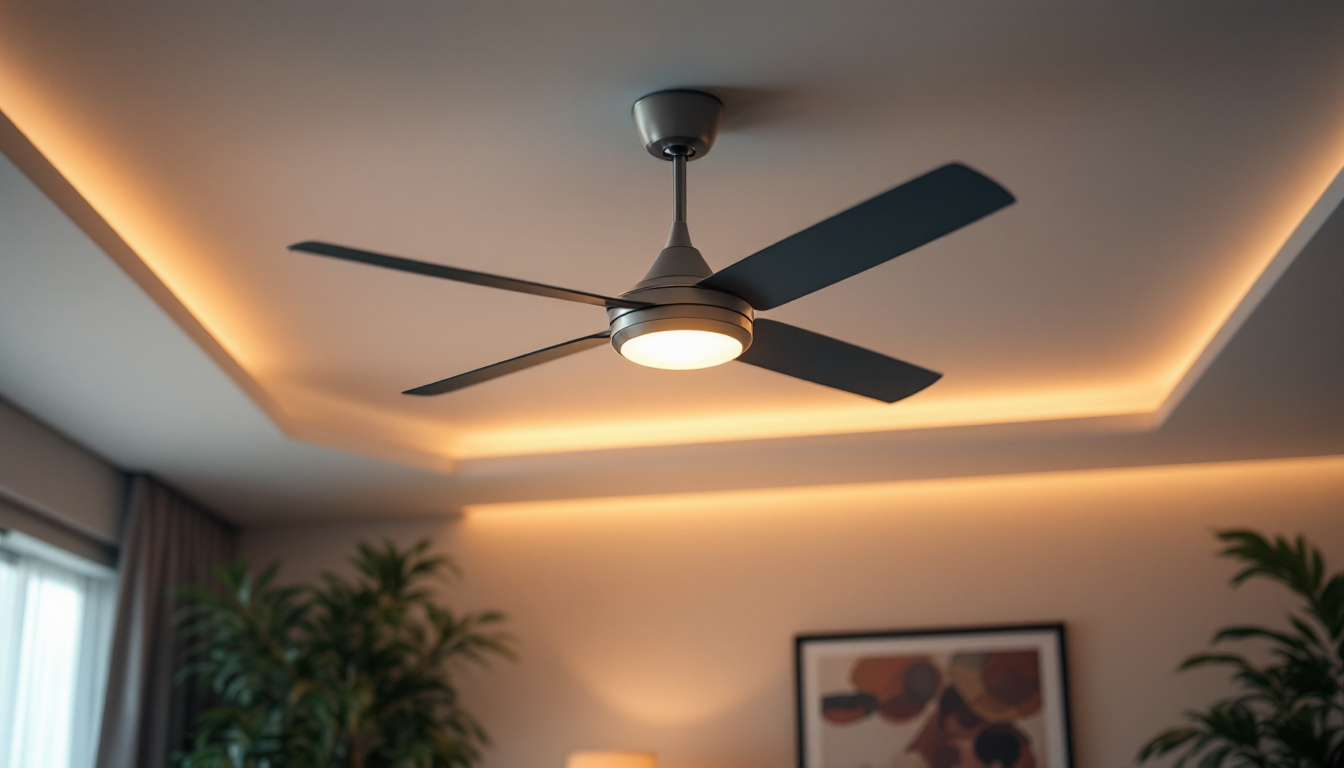
As the world increasingly shifts towards sustainable energy solutions, lighting contractors find themselves at a pivotal juncture. The integration of solar panels with lighting systems presents a unique opportunity for contractors to enhance their service offerings while contributing to environmental sustainability. This article explores how lighting contractors can benefit from incorporating solar panel technology into their projects, the advantages of solar-powered lighting, and practical considerations for implementation.
Solar-powered lighting systems utilize solar panels to convert sunlight into electricity, which is then used to power lights. These systems are particularly advantageous for outdoor applications, where traditional electrical connections may be impractical or costly. The technology has evolved significantly, making solar lighting a viable option for various settings, from residential gardens to commercial properties. Additionally, the growing emphasis on sustainability and reducing carbon footprints has led to an increased interest in solar solutions, as they harness renewable energy and contribute to environmental conservation.
A typical solar lighting system consists of several key components: solar panels, batteries, LED lights, and a charge controller. The solar panels capture sunlight and convert it into electrical energy, which is stored in batteries for use during the night or on cloudy days. LED lights are preferred due to their energy efficiency and long lifespan, while the charge controller ensures that the batteries are charged correctly and prevents overcharging. Moreover, some advanced systems include motion sensors and timers, allowing for even greater energy efficiency by ensuring lights are only activated when needed, further extending battery life and reducing waste.
Lighting contractors can offer a range of solar lighting solutions, including pathway lights, floodlights, streetlights, and decorative garden lights. Each type serves different purposes and can be tailored to meet the specific needs of clients. For instance, solar streetlights can enhance safety in urban areas, while solar garden lights can add aesthetic appeal to residential landscapes. Furthermore, solar floodlights are particularly useful for security purposes, illuminating large areas effectively without the need for extensive wiring. With the introduction of smart technology, some solar lighting solutions now allow users to control brightness levels and lighting schedules via smartphone apps, making them even more versatile and user-friendly.
Incorporating solar lighting into service offerings provides numerous benefits for lighting contractors. Not only does it align with the growing demand for sustainable solutions, but it also opens up new revenue streams and enhances client satisfaction.
One of the most compelling reasons to adopt solar lighting solutions is the potential for cost savings. Solar lighting systems can significantly reduce electricity bills, making them an attractive option for clients looking to lower their operational costs. Additionally, many regions offer incentives for installing solar technology, such as tax credits or rebates, which can further enhance the financial appeal of these systems. Furthermore, the decreasing cost of solar technology itself means that contractors can offer competitive pricing, making solar lighting an even more enticing option for clients who may have previously been hesitant due to upfront costs.
By promoting solar lighting, contractors contribute to reducing carbon footprints and promoting renewable energy. This not only helps the environment but also positions contractors as responsible and forward-thinking professionals in their field. Clients are increasingly looking for sustainable options, and offering solar solutions can set contractors apart from competitors. Moreover, solar lighting systems often utilize LED technology, which not only consumes less energy but also has a longer lifespan compared to traditional lighting. This dual benefit of energy efficiency and longevity further reinforces the environmental advantages of solar lighting.
Clients appreciate the long-term benefits of solar lighting, including low maintenance costs and energy independence. By providing solutions that meet these needs, contractors can enhance client satisfaction and build lasting relationships. Satisfied clients are more likely to refer contractors to others, thus expanding their business opportunities. Additionally, the aesthetic appeal of modern solar lighting designs can elevate the overall ambiance of a property, making it more attractive to potential buyers or visitors. As contractors showcase successful installations, they not only demonstrate their expertise but also create a portfolio of work that can attract new clients seeking similar upgrades.
As the world moves towards more sustainable practices, integrating solar lighting into a contractor’s offerings can future-proof their business. With advancements in solar technology and increasing regulatory support for renewable energy, contractors who embrace these changes will be well-positioned to thrive in an evolving market. This proactive approach not only ensures compliance with potential future regulations but also allows contractors to stay ahead of industry trends, making them leaders in the field. By investing in training and education around solar technologies, contractors can further enhance their skill set, ensuring they are equipped to handle a diverse range of projects in the years to come.
While the benefits of solar lighting are substantial, there are also challenges that contractors must navigate. Understanding these challenges is essential for successful implementation and client satisfaction.
The initial investment for solar lighting systems can be higher than traditional lighting options. Contractors need to educate clients about the long-term return on investment (ROI) associated with solar solutions. By illustrating the potential savings over time and the benefits of reduced energy consumption, contractors can help clients see the value in making the switch. Additionally, many regions offer incentives such as tax credits, rebates, or grants that can significantly offset the upfront costs. Understanding these financial incentives can empower contractors to present a more compelling case for solar lighting, helping clients to appreciate the broader economic landscape surrounding renewable energy investments.
Successful solar lighting installation requires careful site assessment to determine the best locations for solar panels and lights. Factors such as sunlight exposure, shading from trees or buildings, and local weather conditions must be considered. Contractors should be prepared to conduct thorough evaluations and offer tailored solutions based on the unique characteristics of each site. Moreover, understanding the local regulations and permitting processes is crucial, as these can vary widely and may impact the timeline and feasibility of the project. Engaging with local authorities early in the planning phase can help streamline the installation process and ensure compliance with all necessary guidelines.
Furthermore, the choice of solar technology itself can present additional considerations. With advancements in solar panel efficiency and battery storage options, contractors must stay informed about the latest developments to recommend the best products for their clients. For example, integrating smart technology into solar lighting systems can enhance functionality, allowing for features like motion sensors and remote control. This not only improves energy efficiency but also adds a layer of convenience and security for users. As the market evolves, contractors who prioritize ongoing education and adaptation will be better positioned to meet the diverse needs of their clients.
To capitalize on the growing interest in solar lighting, contractors must effectively market their services. A strategic approach can help reach potential clients and communicate the advantages of solar solutions.
In today’s digital age, having a robust online presence is crucial. Contractors should invest in a professional website that highlights their expertise in solar lighting, showcases completed projects, and features testimonials from satisfied clients. Social media platforms can also be leveraged to share educational content about the benefits of solar lighting and engage with potential customers.
Establishing partnerships with other professionals in the renewable energy sector can enhance credibility and expand service offerings. Collaborating with solar panel manufacturers or energy consultants can provide contractors with valuable insights and resources, enabling them to offer comprehensive solutions to clients.
The solar lighting industry is continuously evolving, with new technologies and trends emerging regularly. Staying informed about these developments can help contractors remain competitive and better serve their clients.
As smart technology becomes more prevalent, integrating smart features into solar lighting systems is becoming increasingly popular. Smart solar lights can be equipped with sensors that adjust brightness based on ambient light levels or motion detection, enhancing both energy efficiency and user convenience. Contractors should consider offering these advanced solutions to appeal to tech-savvy clients.
Future advancements may also include the integration of solar lighting systems with smart grids, allowing for better energy management and distribution. This could lead to more efficient use of energy resources and improved reliability of solar lighting systems. Contractors who stay ahead of these trends will be well-positioned to meet the evolving needs of their clients.
The integration of solar panels with lighting systems presents a significant opportunity for lighting contractors. By embracing solar-powered lighting solutions, contractors can not only enhance their service offerings but also contribute to a more sustainable future. The benefits, including cost savings, environmental impact, and increased client satisfaction, make solar lighting an attractive option for contractors looking to grow their business.
While challenges exist, such as initial investment costs and site assessment requirements, the long-term advantages far outweigh these hurdles. By effectively marketing their solar lighting services and staying informed about industry trends, contractors can position themselves as leaders in the field of sustainable lighting solutions.
As the demand for renewable energy continues to rise, lighting contractors who adapt to this shift will not only thrive but also play a crucial role in shaping a more sustainable future.
Ready to harness the power of solar lighting and take your contracting business to new heights? At LumenWholesale, we provide you with the highest quality, spec-grade solar lighting products at unbeatable wholesale prices. Say goodbye to local distributor markups and hello to superior lighting solutions that meet the strictest industry standards. With our hassle-free bulk buying and free shipping, you can trust that you’re getting premium lighting at the best value — every time. Elevate your lighting projects and contribute to a sustainable future with LumenWholesale. Wholesale Lighting at the Best Value is just a click away.

Discover the significance of blue porch lights and their impact on communities in this insightful article.

Discover the essentials of ceiling fans in just 5 minutes with this quick guide tailored for lighting contractors.

Discover essential tips and best practices for maintaining solar panels on lawn lights.

Discover essential insights on 400W LED bulbs for lighting contractors, including energy savings, durability, and cost benefits—boost your projects today!.